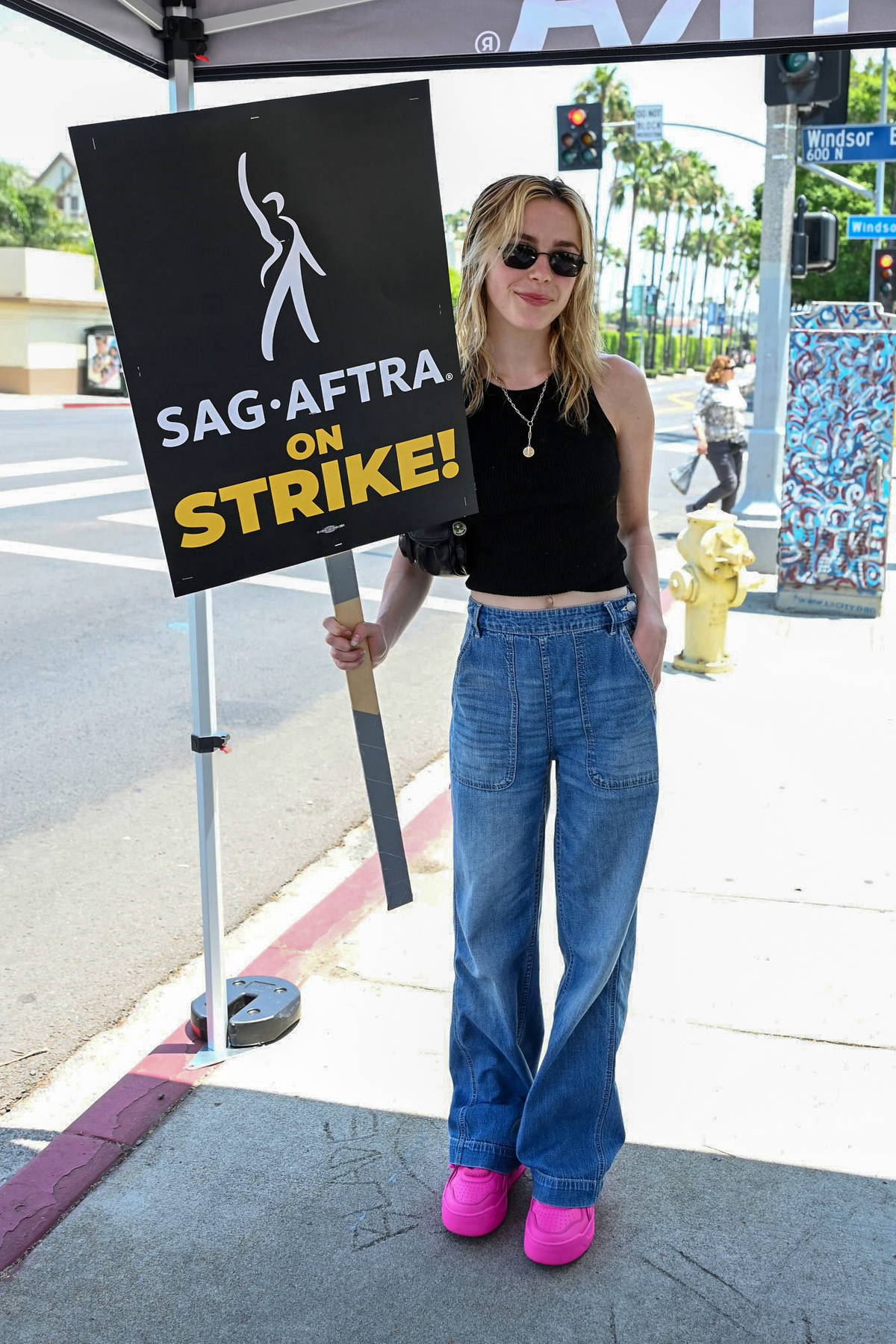SAG-AFTRA Joins WGA On Strike: What It Means For Hollywood Productions

Table of Contents
The Core Issues Fueling the SAG-AFTRA Strike
The SAG-AFTRA strike isn't simply about higher salaries; it's a multifaceted fight for fair wages, equitable residuals, protection against AI encroachment, and improved working conditions. These core issues represent deep-seated concerns within the industry.
-
Disparities in Compensation: The rise of streaming platforms has created a significant disparity in how actors are compensated compared to the traditional model of television and film. While streaming services generate massive profits, actors often receive significantly lower residuals, especially for long-running shows. The union is demanding a fairer share of the streaming revenue.
-
The Fight for Fair Residuals: Residuals, payments actors receive for reruns and syndication, have been drastically reduced by the shift to streaming. SAG-AFTRA argues that the current system is unfair and unsustainable, particularly in light of the massive profits generated by streaming giants. The fight for fair residuals is central to the actors' demands.
-
AI Rights and Concerns: The increasing use of AI in film and television production poses a significant threat to actors' livelihoods. SAG-AFTRA is demanding safeguards against the unauthorized use of actors' likenesses and performances in AI-generated content. This includes stipulations for compensation and control over how their work is used.
-
Improved Working Conditions: The strike also addresses concerns over working conditions, including reasonable rest periods, safety measures on set, and transparency in contracts. These are vital to ensuring actors' well-being and preventing exploitation.
The Impact on Hollywood Productions
The combined SAG-AFTRA and WGA strikes have brought Hollywood to a near standstill. The consequences are far-reaching and will be felt across the entire industry.
-
Production Delays: Countless film and television productions have been immediately halted. Major studio projects, independent films, and even reality TV shows are all affected, creating a massive backlog.
-
Movie and TV Show Release Delays: The strike will inevitably lead to delays in the release of upcoming movies and TV shows. Post-production work, marketing campaigns, and even premiere dates are affected, impacting the release schedule and potentially altering box office and viewership projections.
-
Economic Consequences: The economic impact extends far beyond the studios. Production crews, caterers, transportation services, and countless other businesses that support the film and television industry are facing significant financial hardship due to the production shutdown.
-
Ripple Effects on International Markets: The Hollywood strike is not an isolated event. It has global ramifications, impacting international film markets and collaborations, affecting distribution schedules and potentially leading to delays in international productions.
Potential Long-Term Effects of the SAG-AFTRA and WGA Strikes
The outcome of the SAG-AFTRA and WGA strikes will have lasting effects on the entertainment industry. The potential long-term consequences are varied and complex.
-
Negotiation Outcomes: The success of the negotiations will determine whether the strikes lead to significant industry reform or a temporary disruption. Optimistic scenarios foresee improved compensation, better working conditions, and stronger protections for creative professionals. Pessimistic scenarios involve protracted strikes, potential concessions by the unions, and a lasting power struggle between labor and management.
-
Industry Reform: The strikes have already sparked broader conversations about the need for reform within the entertainment industry. This could lead to lasting changes in compensation models, better treatment of freelancers, and clearer regulations surrounding the use of AI.
-
Future of Streaming: The streaming model's impact on actors' earnings and working conditions is a central issue. The strikes could lead to changes in the way streaming services operate, potentially impacting their business models and impacting content creation going forward.
-
Labor Relations: The strikes are reshaping labor relations within the entertainment industry. The level of solidarity between the WGA and SAG-AFTRA is unprecedented and could strengthen the collective bargaining power of creative professionals in the future.
How the SAG-AFTRA Strike Differs from the WGA Strike
While both the SAG-AFTRA and WGA strikes share common goals such as fair compensation, their specific demands and approaches differ.
-
Specific Demands: While both unions are concerned about fair wages and streaming residuals, SAG-AFTRA’s concerns specifically address the use of actors’ likenesses in AI-generated content and self-tape auditions, issues that are less prominent in the WGA's concerns. The WGA focuses primarily on issues related to writing and script ownership.
-
Negotiating Strategies: The negotiating strategies employed by the two unions may differ, depending on their internal structures and priorities. There's potential for a unified approach or separate settlements, depending on the progress of negotiations with the AMPTP (Alliance of Motion Picture and Television Producers).
-
Potential for Unified Action or Separate Settlements: The possibility of a joint resolution versus separate agreements could significantly impact the long-term effects of these strikes. A united front holds more negotiating power, whereas separate settlements could lead to varied outcomes and leave some issues unresolved.
Conclusion
The SAG-AFTRA and WGA strikes represent a seismic event in Hollywood history, with far-reaching consequences for the entire industry. The core issues—fair wages, residuals, the impact of AI, and the fairness of the current streaming model—highlight a broader need for systemic reform and fairer treatment of creative professionals. These strikes are not just about actors and writers; they are a reflection of a larger conversation about labor rights and the changing landscape of the entertainment industry.
Call to Action: Stay informed about the evolving situation surrounding the SAG-AFTRA strike and its implications for Hollywood productions. Follow the news closely to understand the potential long-term impact of this unprecedented labor action. Learn more about the specific demands of the SAG-AFTRA strike and how you can support the actors' fight for fair compensation and working conditions. Understanding the SAG-AFTRA strike and its complexities is crucial to grasping the future of the entertainment industry.

Featured Posts
-
 Will The Portland Trail Blazers Secure A Play In Spot
May 01, 2025
Will The Portland Trail Blazers Secure A Play In Spot
May 01, 2025 -
 Canadas Economic Future Challenges And Opportunities For The Next Prime Minister
May 01, 2025
Canadas Economic Future Challenges And Opportunities For The Next Prime Minister
May 01, 2025 -
 2025s Must See Southern Cruises A Comprehensive Guide
May 01, 2025
2025s Must See Southern Cruises A Comprehensive Guide
May 01, 2025 -
 Papa Francesco Difende Il Cardinale Becciu Le Dimissioni Non Sono All Ordine Del Giorno
May 01, 2025
Papa Francesco Difende Il Cardinale Becciu Le Dimissioni Non Sono All Ordine Del Giorno
May 01, 2025 -
 Priscilla Pointer A Career In Acting And A Life Well Lived 1923 2023
May 01, 2025
Priscilla Pointer A Career In Acting And A Life Well Lived 1923 2023
May 01, 2025
